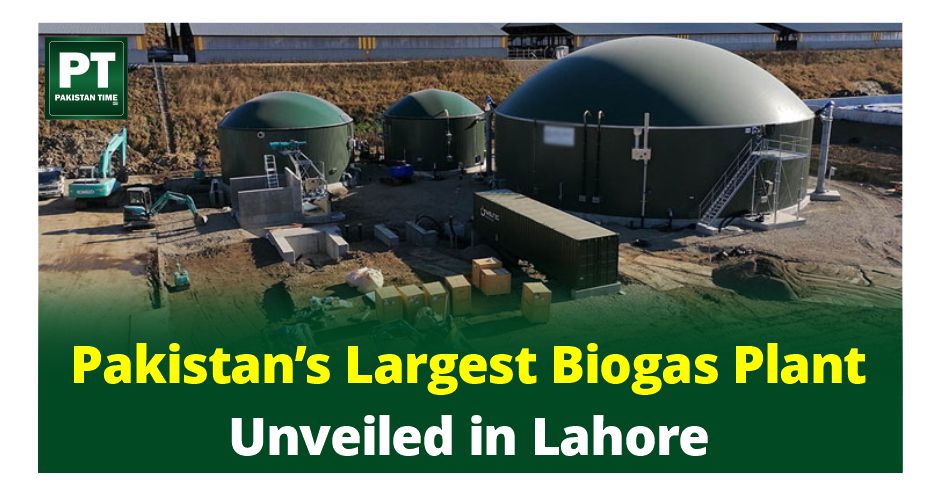Pakistan’s Largest Biogas Plant Unveiled in Lahore
In a significant development, Pakistan’s largest biogas plant was inaugurated in Lahore. The plant, located in Gujjar Colony, boasts impressive capabilities:

- Gas Production: The biogas plant has the capacity to produce 6,000 cubic meters of gas daily.
- Raw Material: It utilizes 1,600 kilograms of dung to generate this gas.
- Organic Fertilizer: Additionally, the plant is expected to produce 16,000 kilograms of organic fertilizer daily, which can be used by farmers for agricultural purposes.

Caretaker Punjab Chief Minister Mohsin Naqvi had laid the foundation stone for this state-of-the-art facility last October. During the inauguration, he toured various parts of the plant and even planted a sapling in the plant complex.
This achievement represents a significant step towards sustainable energy production and environmental conservation in Pakistan.
Let’s delve deeper into the details of this groundbreaking biogas plant:
- Eco-Friendly Energy Source:
- The newly inaugurated biogas plant represents a significant stride towards sustainable energy production in Pakistan. By harnessing the power of organic waste, it contributes to reducing the country’s reliance on fossil fuels and mitigates greenhouse gas emissions.
- Biogas, produced through anaerobic digestion of organic materials, is an eco-friendly alternative to conventional fuels. It can be used for cooking, heating, and electricity generation.
- Local Impact:
- Situated in Lahore’s Gujjar Colony, the plant holds immense promise for the local community. It not only generates clean energy but also addresses waste management challenges.
- The utilization of 1,600 kilograms of dung daily underscores the efficient use of organic waste, which would otherwise contribute to pollution.
- Gas Production and Distribution:
- With a daily gas production capacity of 6,000 cubic meters, the plant can cater to a substantial population. This renewable energy source can power homes, businesses, and industries.
- The distribution network will ensure that the produced biogas reaches consumers efficiently, promoting its adoption across various sectors.
- Fertilizer Output:
- Beyond energy, the plant yields approximately 16,000 kilograms of organic fertilizer daily. This nutrient-rich fertilizer can enhance soil health and boost agricultural productivity.
- Farmers in the region can benefit from this locally produced organic fertilizer, reducing their reliance on chemical alternatives.
- Government Support:
- The project received support from the Punjab government, with the caretaker Chief Minister Mohsin Naqvi playing a pivotal role.
- His commitment to sustainable development and environmental conservation is commendable.
In summary, the inauguration of Pakistan’s largest biogas plant marks a milestone in the country’s journey towards cleaner energy and responsible waste management. Let’s celebrate this achievement and hope for more such initiatives that prioritize both progress and the planet!






